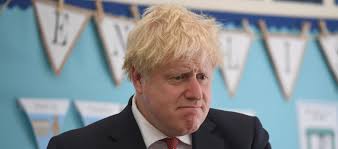The EU has been having a rough time of late and here are a few reasons why:
First, the debacle of the Covid vaccine roll-out. For those of us in the UK who supported continuing EU membership and decry zero sum game nationalism, particularly when it now relates to vaccines, this has been frustrating to say the least…

The European Commission’s embarrassing U-turn on trying to impose vaccine restrictions on Northern Ireland in the face of poor advance ordering of vaccines for EU members relative to the UK was a spectacular own goal. To add to the EU’s woes, assertions initially aired by German officials and then highlighted by President Macron, with no hard evidence, that the UK’s Oxford AstraZeneca vaccine was relatively ineffective for the over 65s, has ensured EU disarray over the vaccine roll-out was complete. Friends of mine on the continent and in Ireland are looking enviously at us, as they wait in vain to be vaccinated. Surely a first. But in the face of a virus which respects no borders, it is in our interest as much as ever that the EU gets this right.
And in mentioning President Macron, he too seems to be shooting himself in the foot to the EU’s detriment. He is increasingly fractious as he tacks to the Right to combat Muslim extremism, introducing a controversial law banning the filming of police actions, subsequently withdrawn in the face of allegations of police brutality towards ethnic minorities. Combined with indulging in his bout of vaccine nationalism versus the UK and looking strained, it is surely linked to the popularity of the Far Right. A recent presidential election (due April 2022) poll puts Marine Le Pen just 4% behind Macron in a run-off. Early days but worrying.
Add to this the departure of the steady, reliable and powerful Merkel in October and there seems a lack of bandwidth in leadership to guide the EU out of its troubles. Even Draghi’s rise to the premiership in Italy is cause for concern. Whilst highly able, this technocratic appointment just highlights the failure of democracy in a nation which cannot hold together government coalitions, even mid-pandemic.
Next are issues relating to the troublesome former Eastern European bloc. Hungary and Poland, in particular, are becoming increasingly authoritarian, leaving the EU perplexed in how far to go to rein them in. Despite resolving issues that nearly derailed a coronavirus recovery fund, the cultural divide with western Europe continues to grow. Judicial reforms, restrictions on the media and the erosion of checks and balances have reinforced the governing parties’ dominance there. Banning abortion, restricting LGBT rights and curtailing media freedom are all on the legislative agenda in these countries. Only last week, Poland’s governing Law and Justice party (PiS) proposed a tax on advertising revenues to further undermine private, independent media. Since the PiS took office in 2015, Poland had fallen from 18th to 62nd in the World Press Freedom Index. Just one example of a disturbing trend. The EU is a bulwark that protects democracy in these relatively new, independent nations but is struggling to strike the right balance on intervention.
None of these issues are cause for Brexit-inspired celebration in the UK. The fall-out of our departure from the single market grows and when the coronavirus pandemic is hopefully tamed, the EU’s challenges will ultimately remain our challenges too. I wonder whether solutions to them would have been easier to achieve had we remained a member. Only time will tell.

